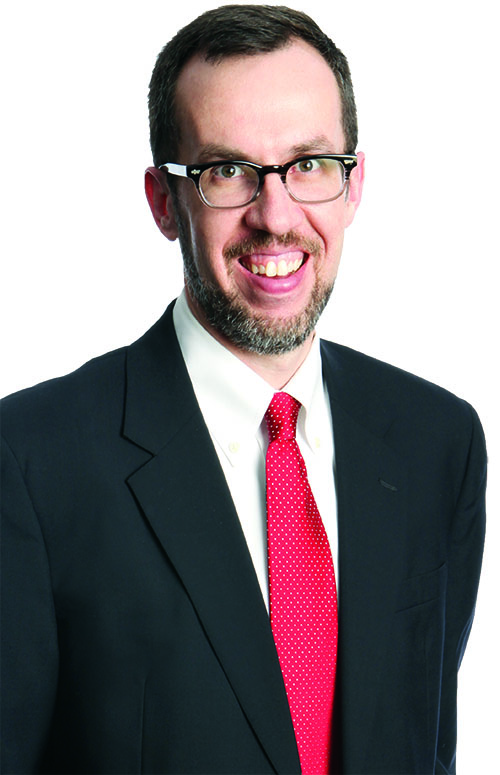
From his time as a student at Harding, Russell Brown (’99) knew he wanted to work in public service. He landed an internship with then Arkansas Gov. Mike Huckabee his senior year that led him to an early career in government.
“I liked interacting with the ultimate decision makers, city counselors, mayors and county commissioners,” Brown says. “I enjoy participating in public meetings. Not everybody likes to get up and make a case and have your arguments dissected and analyzed or argued against, but I enjoy it.”
After graduation, Brown and his wife, Emily Haas (’00), moved to Indiana where he worked on a congressional campaign and went on to work in state government for Indiana Gov. Frank O’Bannon. While working for O’Bannon, he decided to enroll in the McKinney School of Law at Indiana University in Indianapolis where he attended part time in the evenings.
“I looked around and realized that everybody around me who was higher on the organizational chart was either 20 years older than me or had a law degree. So I saw [law school] as an opportunity to advance my professional career.”
After his first year of law school, Brown began volunteering with the Neighborhood Christian Legal Clinic (NCLC) providing pro-bono legal services to people in the community.
“I immediately started to see the value in what [the clinic does],” he says. “The philosophy is to go out into neighborhoods and offer legal services to clients who otherwise wouldn’t have access. They also do preventative legal education seminars often in some of our homeless shelters, domestic violence shelters and community centers.”
Upon finishing law school and passing the bar in 2007, Brown decided to start a legal clinic at his church. The Southeastern Church of Christ in Indianapolis has functioned as an NCLC intake site for the past 10 years. In 2011, Brown joined the board of directors of NCLC where he currently serves as secretary to the board.
Twice a month the clinic opens to the community, and Brown helps coordinate a number of volunteers, both lawyers and non-lawyers, who help people meet with an attorney and get free legal advice.
“For us, it has been a great opportunity to engage with the community. We have church members who serve as greeters. They help people come in, get the paperwork filled out, and keep them company while they’re waiting. Often they’ll pray with folks if they request it. They tell them about services and programs the church offers like our food pantry and preschool. There are a number of ways for people to connect with us.”
Altogether the NCLC serves about 10,000 people each year through the 18 intake sites, almost all low-income individuals who fall well below the federal poverty level, including many immigrants.
“The immigration portion is a big part of the clinic. When [NCLC] started, which is largely still true, none of the other secular pro-bono legal services providers offered immigration services. It’s philosophically an area of emphasis because nobody else is doing it, and we all feel called by our faith to provide that service to our neighbors.”
While the NCLC is designed to help community clients, it is often the volunteers who come away feeling the most rewarded.
“I always feel like I get more out of my two hours at the intake session than I probably give just because I know that somebody else is benefitting from my legal education and my legal experience.”
When Brown isn’t volunteering with the NCLC, he works professionally as a zoning and real estate lawyer for Clark, Quinn, Moses, Scott & Grahn LLP where he was named partner in 2015.
“I enjoy trying to help communities do something that’s for their ultimate good. It’s a good opportunity for me to interact with public employees and make positive contributions in our communities for a lasting impact.”
For Brown, it is not just about waking up, going to work and coming home at the end of the day.
“I think there’s more expected of us, not just as lawyers but as people of faith. So I want to continue to try and find ways to make a difference for folks in my community, for my clients, and for the public at large.” — Jonathan Murphy